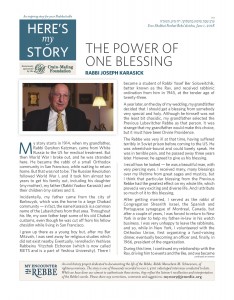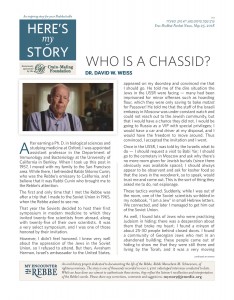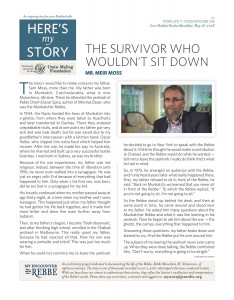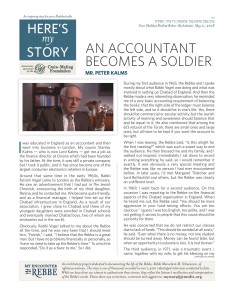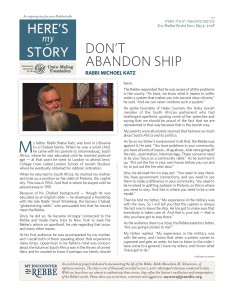The Power of One Blessing
My story starts in 1914, when my grandfather, Rabbi Gershon Katzman, came from White Russia to the US for medical treatment. But then World War I broke out, and he was stranded here. He became the rabbi of a small Orthodox community in San Francisco, while waiting to return home. But that was not to be. The Russian Revolution followed World War I, and it took him almost ten years to get his family out, including his daughter (my mother), my father (Rabbi Yaakov Karasick) and their children (my sisters and I).
Incidentally, my father came from the city of Barbruysk, which was the home to a large Chabad community – in fact, the name Karasick is a common name of the Lubavitchers from that area. Throughout his life, my own father kept some of his old Chabad customs, even though he was cut off from his fellow chasidim while living in San Francisco.
I grew up there as a young boy but, after my Bar Mitzvah, I was sent away for religious studies which did not exist nearby. Eventually, I enrolled in Yeshivas Rabbeinu Yitzchok Elchonon (which is now called RIETS and is a part of Yeshiva University). There I became a student of Rabbi Yosef Ber Soloveitchik, better known as the Rav, and received rabbinic ordination from him in 1945, at the tender age of twenty-three.
A year later, on the day of my wedding, my grandfather decided that I should get a blessing from somebody very special and holy. Although he himself was not the least bit chasidic, my grandfather selected the Previous Lubavitcher Rebbe as that person. It was strange that my grandfather would make this choice, but it must have been Divine Providence.
The Rebbe was very ill at that time, having suffered terribly in Soviet prison before coming to the US. He was wheelchair-bound and could barely speak. He was in terrible pain, and he passed away three years later. However, he agreed to give us his blessing. (more…)


